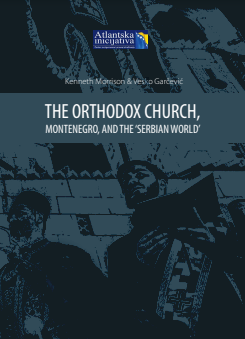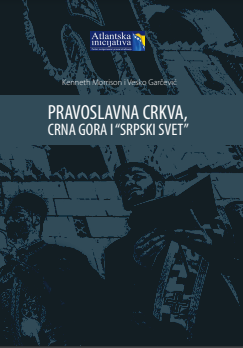
The Orthodox Church, Montenegro, and the "Serbian World"
The Orthodox Church, Montenegro, and the "Serbian World"
Keywords: Serbia; world; Christianity; Orthodox church; Montenegro;
Throughout European history the church has played an important role in the creation of nations, their identities, and their states. While the political importance of the churches (particularly in traditionally Protestant or Lutheran parts of the continent) has noticeably decreased over time, in Orthodox countries the church remains a significant actor, inextricably linked to both politics and state power. The Serbian Orthodox Church (Srpska pravoslavna crkva - SPC) remains a potent force in public and political life today. While politics is transient, for Serbs in the Western Balkans the church is a constant - a stable entity and an institution that represents historical continuity, national identity and destiny. The church casts itself as the authentic articulator of the soul of the Serbs and throughout the Western Balkans many of them regard it as an institution that is beyond reproach. Consequently the SPC is more influential and powerful than any individual political figure or any state institution in Serbia or in the neighboring states where Serbs reside. Although its influence is exercised with relative discretion, it is nevertheless exercised. The SPC is not merely an instrument of soft power; it is an important node in a network spanning politics, traditional and social media, and academia within the broader Srpski svet (Serbian World) project. The term ‘Serbian World’ was first mentioned in public in September 2020 by Aleksander Vulin, then Serbian Minister of Defense (and since December 2022, Director of the Serbian Security Intelligence Agency). Vulin stated: ‘Aleksander Vučić should create the Serbian World. Belgrade must gather all Serbs in and around it, and the president of Serbia is the president of all Serbs.’ In essence, proponents of the Serbian World aim to ‘unite Serb lands’ in the Western Balkans. The SPC plays a crucial role in terms of that objective, in that it has been and continues to be utilized as an effective tool to interfere in the domestic affairs of neighboring states. The church enjoys a privileged status in Serbia and sometimes operates in a ‘grey zone’, outside the legal systems of neighboring countries. Montenegro, (North) Kosovo and Bosnia & Herzegovina (Republika Srpska) are all key to that project, but without Montenegro the aims of the Serbian World can never be realized, and it is here that the SPC and other proponents of the project have been most active in attempting to shape the political and social landscape. Hence Montenegro5 – where the SPC emerged in 2019 as the de facto political opposition - is the primary focus of our analysis.
More...
